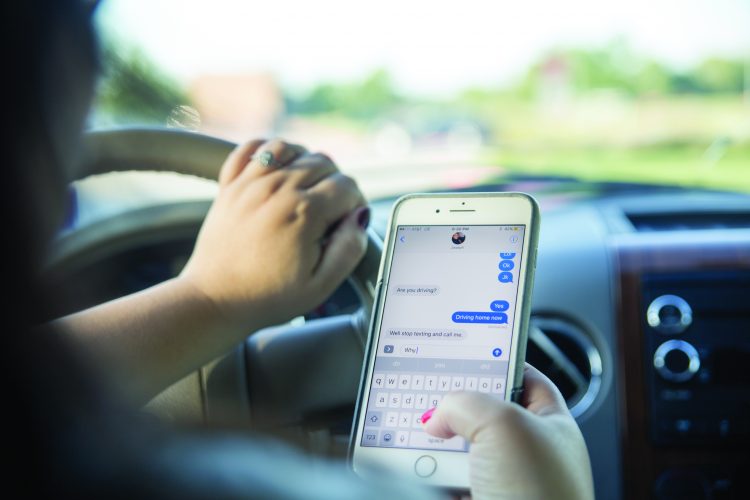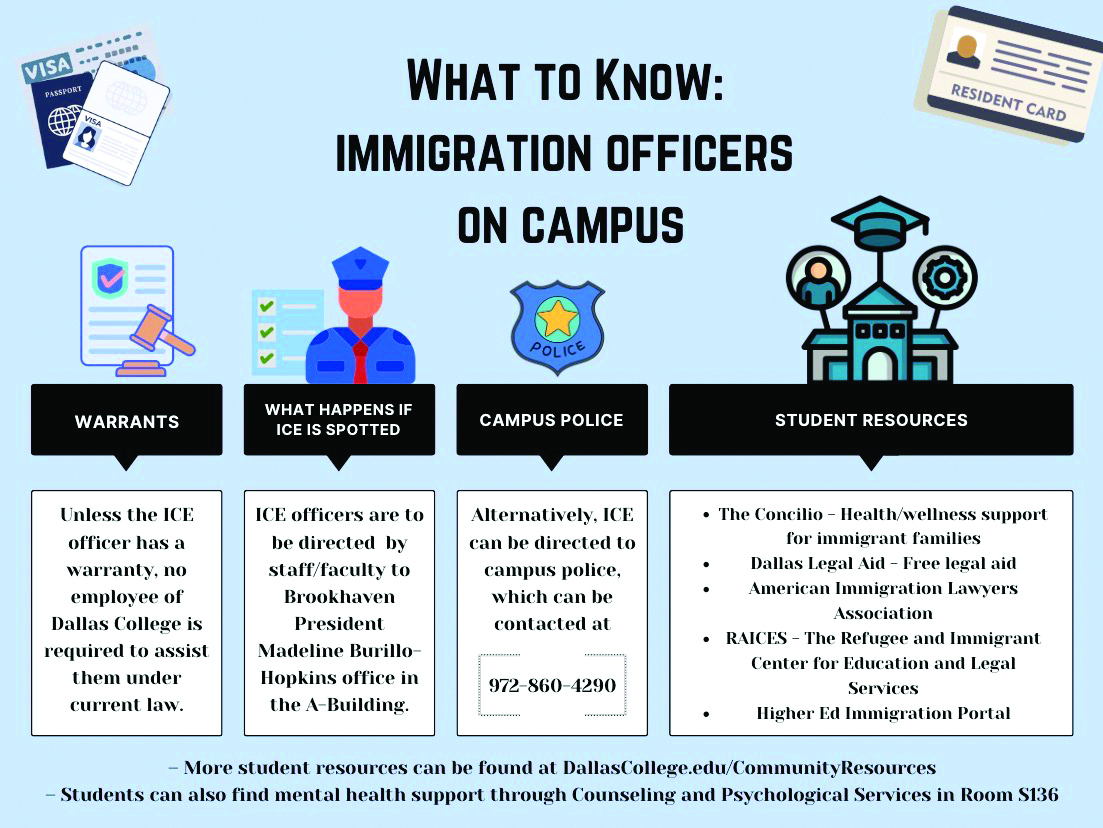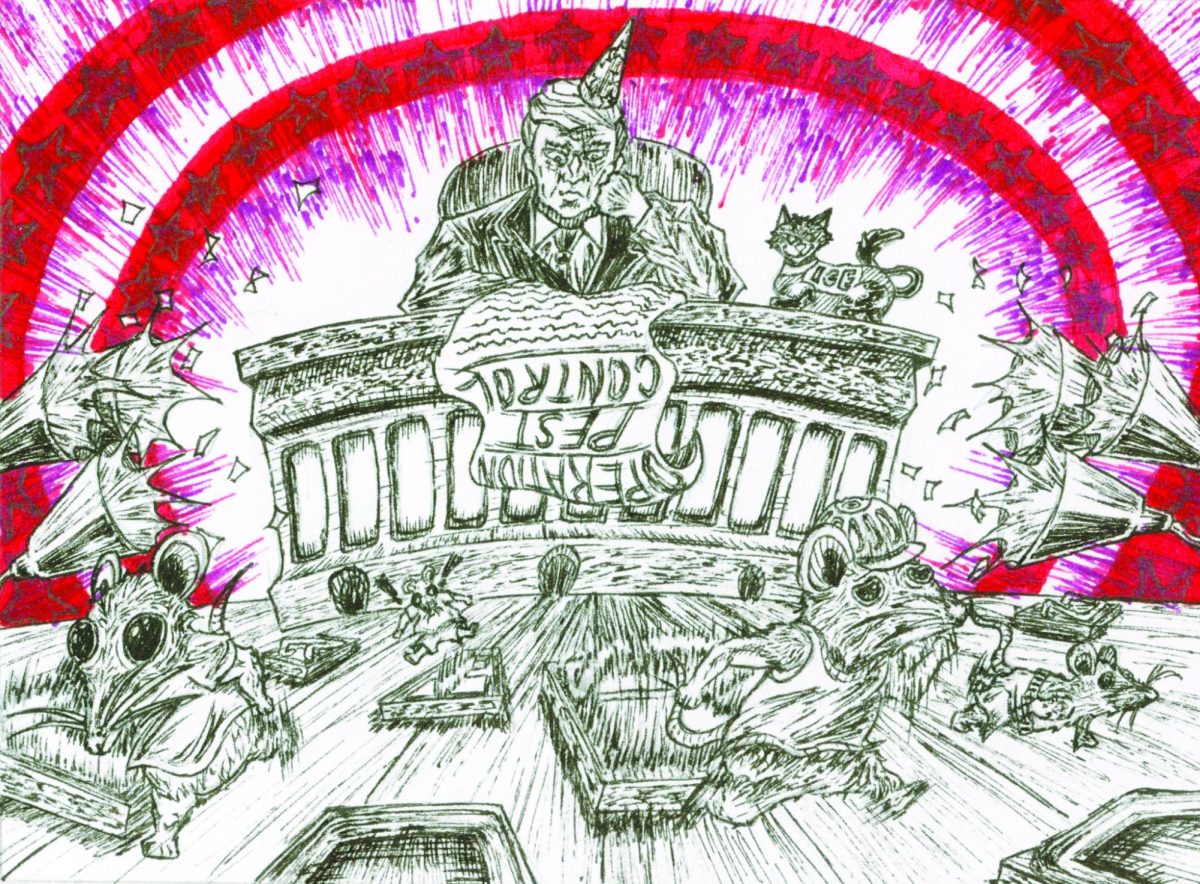By Lauren Keuning
Opinion|Layout Editor

HB 62 prohibits drivers from texting behind the wheel.
Texas drivers will face misdemeanor charges and fines for using a wireless mobile device to read, write or send text messages while operating a motorized vehicle as of Sept. 1, according to The Dallas Morning News.
House Bill 62 passed in May with a 114-32 vote and was signed June 6 by Gov. Greg Abbot. Anyone who violates the law and gets a ticket faces a misdemeanor charge and a fine of $25-99. Repeat offenders could be penalized up to $200, according to the DMN.
According to the law, police do not have the authority to take possession of a device or assign points to a drivers license.
HB 62 gives exceptions to mobile device usage and states hands-free functions, navigation reference, reporting illegal activity, activating a function that plays music and reading a message the driver has reason to believe to be an emergency are all legal while driving, according to the Texas legislature’s website.
Amendments were added to the statewide ordinance that prevent cities and counties from regulating mobile devices while driving to avoid double jeopardy with state and local citations, according to The Texas Tribune. “We don’t need a patchwork quilt of regulations that dictate driving practices in Texas,” Abbot said in an interview with The Texas Tribune.
Prior to HB 62, several Texas cities established ordinances that prohibited drivers under 18, those in school zones and bus drivers with minors on board from using a phone while driving, according to the DMN.
In an email to the Courier, Capt. Gabriel Galvez, a Brookhaven College police officer, said although there have not been any accidents from distracted drivers in the area recently, officers on campus notice students texting and driving when they are on patrol.
“We have seen several close calls with drivers almost being involved in accidents for texting while driving and not paying attention to the road.”
Robert Renteria, a student, said he knew texting while driving in a school zone was illegal, but was not aware of the new law. He said he uses his car’s Bluetooth function often, but is still guilty of texting and driving. “I think it’s a good law to pass,” he said.
A similar bill was passed by the legislature in 2011, but was vetoed by former Gov. Rick Perry. Cristina Garcia, a government adjunct professor, said the bill did not pass because of privacy issues and regulation. Garcia said there are many factors that go into why a bill like this would be vetoed or approved, such as insurance claims and gray areas for issuing citations.
Galvez said officers will be more aware of drivers’ actions and will actively look for texting behind the wheel. To differentiate from different mobile device usage, he said, officers will be looking for drivers looking down into their laps, looking back up and looking back down.
In an interview with the Fort Worth Star- Telegram, James Bass, executive director of the Texas Department of Transportation, said 455 people were killed and more than 3,000 were seriously injured in crashes due to driver distractions in 2016.
Galvez said the new law should improve the safety of all drivers and pedestrians in the community and result in less accidents.












